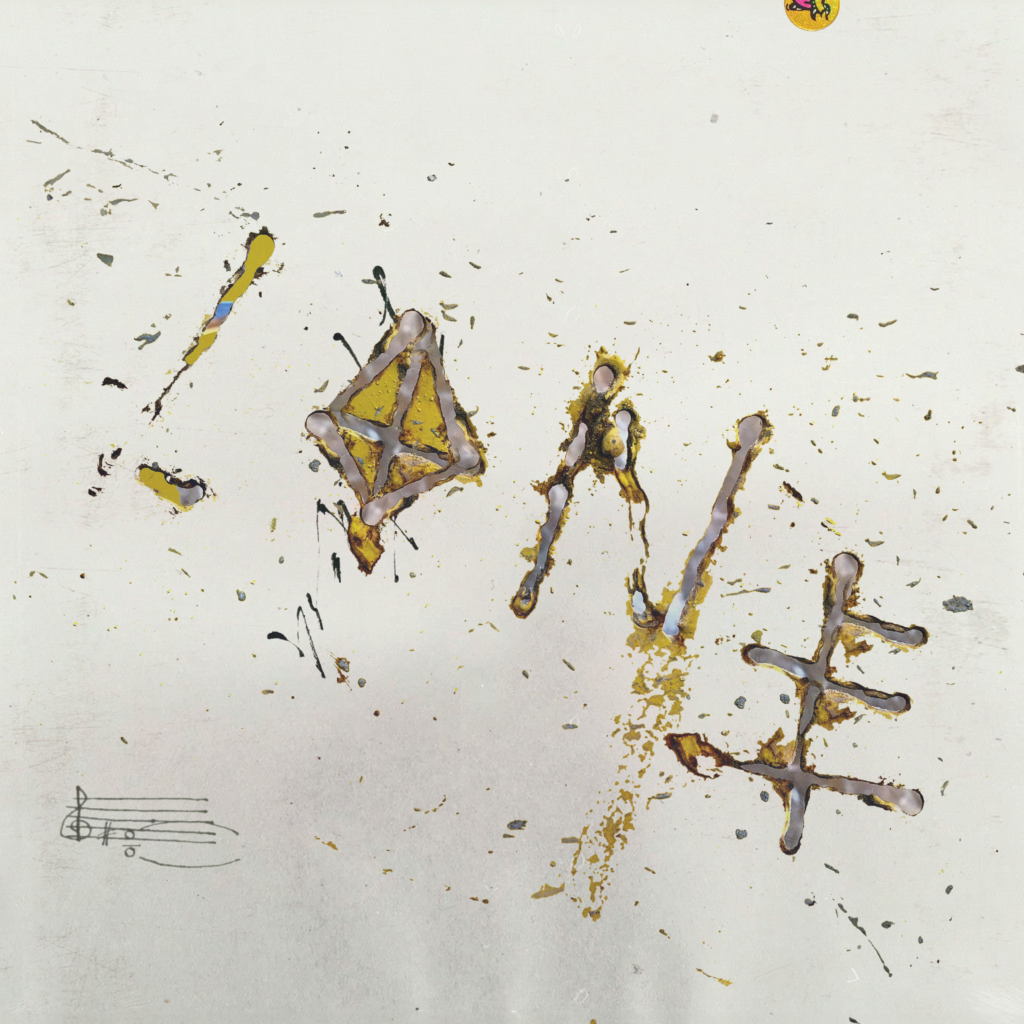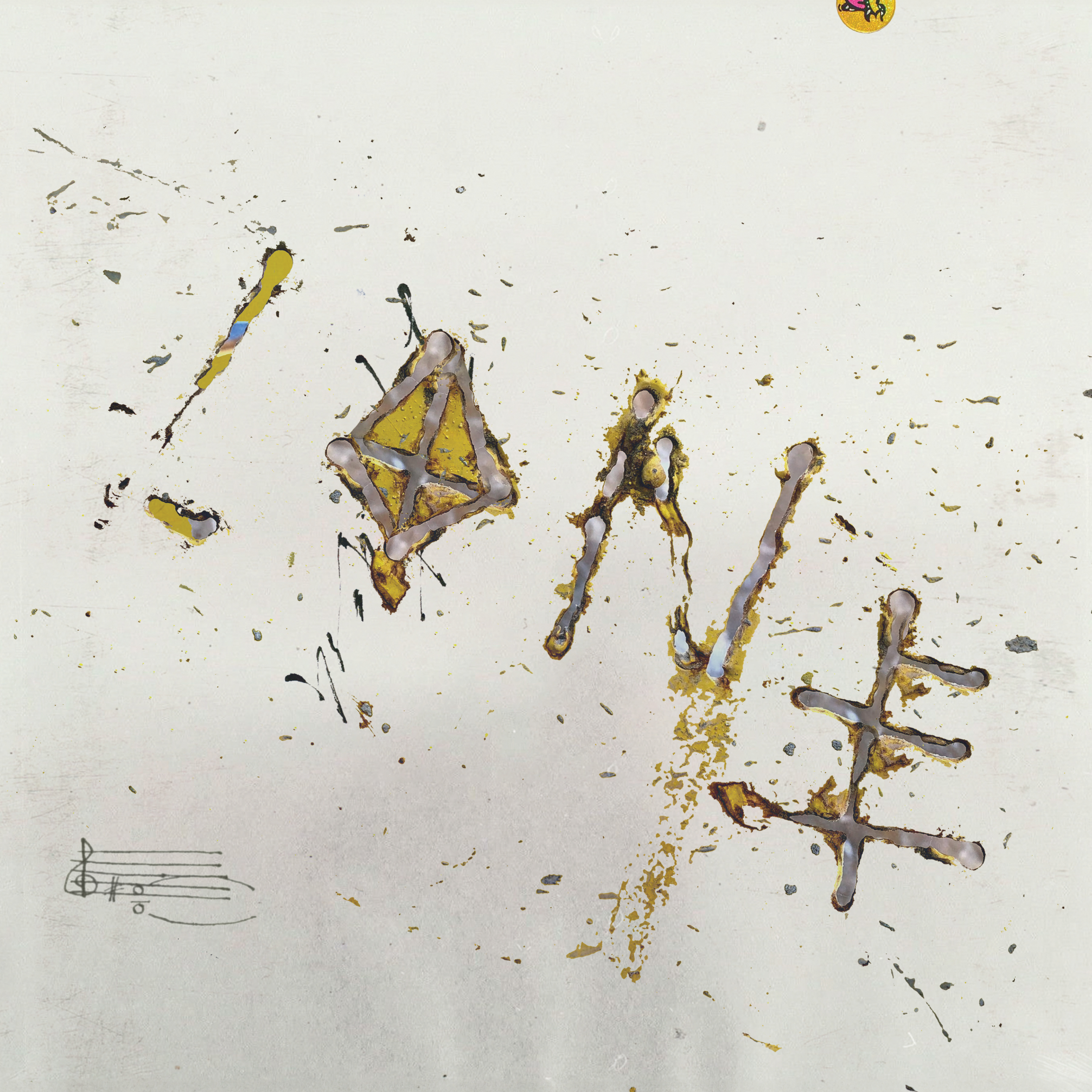
Seekers
NR presents Track Etymology, the textual corollary to nr.world’s exploration of contemporary soundscapes: A series of short interviews delving in the processes and backstories behind the releases premiered on nr.world’s dedicated platform.
Hi Hazina! Should we back up a little bit? When did you first get in touch with music?
I started with music when I was young. In my house, we always had music playing. I really liked how music could affect people. I started learning guitar when I was seven. Playing an instrument let me express myself in new ways. I loved practicing, trying new music styles, and making my own songs.
Now I’m into electronic music. I really like old hip hop, liquid, and drum n’ bass. I got my first vinyl, a Liquid mixtape, from a market in Camden Town.
I read about your background in Cinema Studies, and of your fascination with the evolution of both diegetic and non- diegetic sound in film. How does this translate in your writing process?
When I write, I listen for sounds in my scenes just like I do for the visuals. I think about the noises in a quiet forest or a busy city to make my stories feel real. I want to make readers feel like they are really in the world of my stories. I am excited to keep using these ideas in my work and to find new ways to connect with readers both in their minds and hearts. The movie style is in ‘Lone’ and will be in my next work too. It’s my way of making things. The cinematic field is present in ‘Lone’ and it will be present in my next work as well. It’s an automatic composing style from my side.
What was the overarching narrative behind your new record, ‘LONE’?
‘LONE’ is a musical journey that delves into the depths of introspection, exploring the intricacies of solitude and the profound moments of clarity that arise from it. Each track is a chapter in the story of a solitary individual navigating the complexities of their inner world, grappling with introspection, and ultimately finding solace in self-awareness.
I’ve started composing it during 2020, just one year after my debut release Ep as my new moniker Tadleeh. The album begins with a sense of isolation and uncertainty, reflecting the protagonist’s journey into the unknown. As the narrative unfolds, themes of resilience, growth, and empowerment emerge, driving the protagonist to confront their fears and embrace their true self.
Speaking of diegetic and non-diegetic..It’s interesting how context determines the reception of music. A record like ‘LONE’ could work in several frameworks. During your career you held numerous residencies in radios, played in clubs.. In which settings do you mostly present your music? Does the context influence your presentation?
I’m used to play my EPs, former productions and album during my live performances. My presence in Radio is connected to dj sphere, that I also love a lot! During my entire career I did both, spacing between club events, festival, radio show or residency as well as galleries. I don’t think my personal works fit well in a proper club, where I actually prefer to dj. ‘LONE’ sounds better in an intimate place.
Yours is an extremely varied and experimental career — different labels, different medius, different settings. How did you approach ‘LONE’, considering it is your first LP? Is it a crystallization of your journey up until this point as an artist?
I started making music when I was a teenager, and starting my very first project Petit Singe in 2013, releasing on Haunter Records (Milan). From that point on i’ve released many different works in many different support (12’’ vinyl, 7’’, tape etc).
Approaching my first LP was a deeply introspective and transformative process. I saw it as an opportunity to distill the essence of my artistic evolution and present a cohesive narrative that reflects the multifaceted experiences and influences that have shaped my musical identity. I’m already processing some new work for a new album.
As per Sarah Thornton, club culture presents “Three principal, overarching distinctions which can be briefly designated as: the authentic versus the phony, the ‘hip’ versus the ‘mainstream’, and the ‘underground’ versus ‘the media.” This was in her seminal book “Club Cultures”. The year was 1995. I often ask producers and DJs their perspective on the contemporary clubbing landscape. You were the creative mind behind the now retired, forward-thinking events series Sine Confine in Milan, so I assume you had a first-hand experience of how these categories interacted in a unique setting such as the one you were curating. Do you feel those distinctions are a bit outdated or do they stand the test of time?
I believe that the experiences of club culture cited by Sarah Thornton can be all present, only in part, or even all absent even if we are talking about the same event or context. As a DJ and as a curator of musical events – therefore as a “victim” and “perpetrator” -, I can honestly say that the “underground” aspect is the most questionable and difficult to respect. The public doesn’t trust: they always need digital context to ensure the “who, how and why” of a specific event. Curators themselves don’t have many sponsorship choices these days, other than the obvious one on social media.
These mechanisms, in my opinion, arise from a public that is absolutely wary of what it doesn’t know, of being surrounded by “offline” people. Unfortunately I think that the artistic proposal is downgraded.
Neither on the part of the organisers nor on the part of the participants is there a desire to be false, not to be fashionable or not to be underground enough. But I think that this discussion can be broadened to an anthropological, rather than musical, in-depth analysis. They are status quos that human beings have, regardless of club culture. Sine Confine – which is not completely finished, I hope – had – and has – the same purpose as any other organisation: to enhance the work of artists who consider themselves in line with their own tastes.
The underground scene often has difficulty finding funding, and is forced to finance itself. Those who move in this field often know the risks, in terms of turnout and economics. And this is where social media comes in handy. So, who is right and who is wrong? The ordinary citizens who do not finance niche events, or the organisers themselves who, for fear of losing out financially, rely on mainstream social media? It is a war that is too deep-rooted and sees many active participants: the public, organisers, urban spaces, institutions, financiers…
As for my personal Sine Confine project, I hope that one day it can restart and become operational again, far from the consolidated sexist and chauvinist gazes in this country.
Sine Confine was an “art and music platform.” You also produce sound-based installations and commissions, most recently for Munich’s Haus der Kunst —there’s a clear trans-disciplinary component to your practice, could elaborate a bit on that?
Yes, I think that an artist can flush out art everywhere, in every discipline and places.
I’m really happy of being part of Tune program – curated by Sarah Miles -. My music is absolutely open to any spaces and situations. Me personally, I love being involved in different artistic contest: curating (Sine Confine), listening, viewing… I love to merge multiple opportunities and people.
Your music feels heartfelt but liminal..It has this intimate but detached feeling to it, almost like an invitation to enter a conversation but only to be left on its doorstep, stuck between its reflexive moments and sonic implosions. How is your relationship with the listener? Is it something you think of while composing?
I want to make songs that feel close and personal, using heart songs and thoughtful music to bring people into the feelings of the songs. The in-between feeling you talked about is what I aim for, making a place that is both close and wide, known but also mysterious. I do think about how people will feel and connect with the music when I write it. But, I focus on sharing my own feelings, experiences, and creative drive in an honest way. I think that if I stay true to my own vision and am open in my expression, I can make music that deeply connects with others. I hope to evoke emotions, provoke thought, and inspire introspection in those who choose to journey with me through my music.
There’s this quote I obsess over by James Joyce, it was part of an essay on Wagner’s Tristan und Isolde, “This music smells like sex.” I think it sums up perfectly the drama’s themes and overall sensorial experience. We often tend to associate music to visual metaphors, but I think smell is an underrated sense —What would your music smell like?
Wow! I didn’t know about this particular Joyce’s quote, and I have to say that I definitely agree, even if I never thought about this interesting connection between them. I mean, smell is also proper of music. And come to think of it, I have a certain smell in my mind linked to the theatre halls. The seats, the main wood stage, the “waiting smell” for the show to start.
That being said, since I’ve never deeply reflected about this, I’d rashly associate my music with the odor that’s in the air when something has been set on fire.
Interview · Andrea Bratta
Artwork · Visio
Pre-order the digital album here
Tadleeh will be performing on April 5th at Rewire Festival. Find out more here.
Follow Tadleeh on Instagram and Soundcloud
Follow NR on Instagram and Soundcloud
